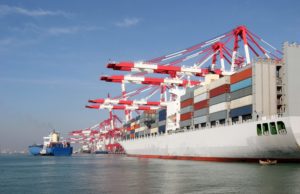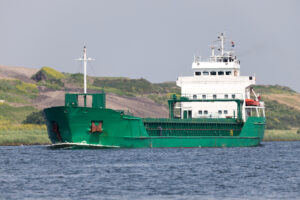Ordering of alternative-fuelled vessels is continuing to grow in 2025, despite a slowdown in the overall newbuild market. New orders for alternative-fuelled vessels reached 19.8 million gross tonnes in the first six months of 2025, exceeding the 2024 figure by 78%, according to data from DNV’s Alternative Fuels Insight (AFI) platform.
A total of 151 alternative-fuelled vessels were ordered in the first half of 2025, slightly behind the 179 orders placed during the first six months of 2024.
Even so, the overall GT has increased markedly, showing a 78% year-on-year growth driven mainly by activity in the container segment, but with notable orders also in the bulker, tanker and RoPax segments.
“We’re seeing a broader shift take hold across the industry. The energy transition is no longer driven solely by first movers, it’s now being shaped by a second wave of shipowners who are integrating alternative fuels and technologies into their core strategies,” said Knut Ørbeck-Nilssen, CEO Maritime at DNV.
LNG was the clear fuel of choice, accounting for 87 new vessels ordered, totaling 14.2 million GT so far in 2025. The fuel remains dominant in the container segment, with 13.6 million GT (81 vessels).
Methanol has also shown strong momentum, with 4.6 million GT (40 vessels) ordered across the container, RoPax, tanker, offshore, and car carrier segments.
Ammonia and hydrogen, while still niche, continue to register activity, suggesting early-stage confidence in their long-term potential.
Three ammonia-fuelled were added to the orderbook, primarily in the tanker and general cargo segments (37,000 GT total). Hydrogen made a return with four vessels (114,000 GT) currently on order.
In the first half of 2025, 13 LNG bunkering vessels were ordered, compared to 62 in operation globally, with February marking the strongest month for this segment with eight orders.
Jason Stefanatos, global decarbonization director at DNV, explained that the data reflects a sector that is actively recalibrating.
“We’re not seeing a slowdown in ambition, but rather a more measured approach to investment – one that balances optionality, compliance readiness, and long-term fuel strategy. As shipowners weigh compliance strategies, the upcoming fuel intensity rules, which form part of the IMO’s Net-Zero Framework, are expected to accelerate this shift,” he noted.



